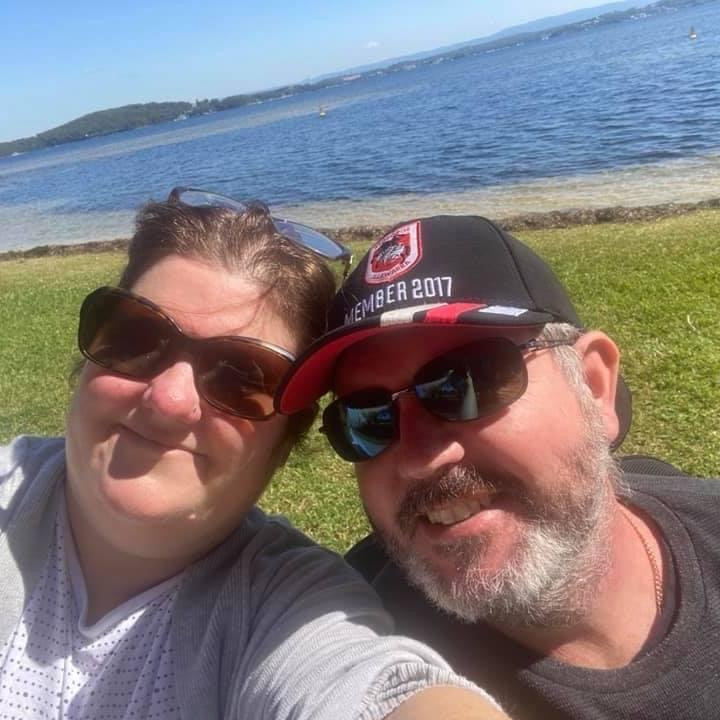Multiple Sclerosis, also known as MS, is a chronic disease where the immune system attacks the Central Nervous System (including the brain, spine, and optic nerves), often causing inflammation and damage to the nerves, making it hard for the brain to send signals to the rest of the body. People with MS often experience symptoms, such as fatigue, chronic pain, and difficulty walking.
Matt is an Ability Options participant from Western Sydney, who has been living with MS for 19 years and currently receives Support Coordination. He enjoys reading, sports, live theatre, spending time with his family and friends, and promoting disability and inclusion in the community. I sat down with Matt to talk about World MS Day and his experience as a person living with MS.
- What are some things you have noticed after receiving your MS diagnosis?
Well, let me start off by saying that as part of World MS Day, I really want to stress the importance of connections, in managing MS. To me, that means establishing and maintaining a really strong support network. Since my diagnosis in 2003, having that extremely strong support network of family, friends, medical professionals, and other support services has helped me live well with the challenges of MS.
- How has your MS diagnosis made a difference to your everyday life in a positive way?
When I was first diagnosed with MS, you wouldn’t have ever known that I had MS at all. There’s no MS brand on your forehead. It’s an ‘invisible’ disease. Over the 18 years, I have progressed from walking normally, to using a walking stick, to a four-wheeled walker, and a wheelchair. Now that I have a power wheelchair, my independence has dramatically increased in terms of being able to get out and about in the community without necessarily having to rely on somebody else, in this case, my wife as primary carer.
Now that I’m also medically retired, I’ve got much more opportunity and time to make a positive difference to those who are living with a disability. It doesn’t matter what that disability is. The other thing is, I’m an active participant at the NeuroMoves Gym, and that has really helped me in getting the physical and social interaction that sometimes people with disability can miss out on because of a feeling of isolation.
- What are some of the challenges of living with MS, and what are some strategies you have taken in order to overcome these challenges?
Some symptoms I deal with include fatigue and heat intolerance, so I try to schedule my day. Most of the things I do are scheduled in the cooler parts of the day. The obvious challenge in using a wheelchair is being able to get into a certain place. Some places aren’t always wheelchair-friendly, and because of that fatigue factor, sometimes plans you make with friends and family must be changed at the last minute. That can be particularly challenging when you’ve got a young family.
I try to get more actively involved, and I have a strong presence now within our local community, in our local health district, our local council, and other health service providers to help benefit consumers in their health journey, regardless of what their disability is. I’m also one of the NSW MS Ambassadors, so one of my key roles is to go out and educate the community about what MS is and my positive approach to living with its challenges.
- What are some steps you have taken to maintain a healthy lifestyle?
I really take on board some of the allied health service provider’s advice in terms of dietitian consultation about my diet, portion-controlled meal preparation and delivery. I’m a lot more physically active in terms of the NeuroMoves Gym, as I strongly believe that this helps me to maintain both my physical and mental health. My support network offers real encouragement to me in these endeavours.
I think the COVID period really highlighted the power of human interaction. While the available video conference technology has helped significantly to maintain these human interactions, when you can meet face-to-face, the dynamic changes. You shake hands with somebody, and that’s a powerful human connection. One of the features that I like with my wheelchair is being able to raise the seat up, so I can look someone in the eye.
- What are some tips and advice you would give to other people living with MS?
I really think that the first tip is to pick up the phone and register with MS Connect on 1800 042 138, as someone who is living with the challenges of MS. To me, knowledge is power. To help you:
- Make sure you get all the updated information you possibly can, so you can be informed about your condition:
- Listen to your own body because it will tell you when you’ve pushed things too far.
- Make sure you are prepared for your medical appointments and ask questions.
- Form a strong support network with others within the MS community who are also dealing with the same thing as you are. You’ll find that there are some similarities, but as I said before, there are no two MS journeys that are the same.
For more information on MS Limited, follow the link below. To register with MS Connect, call 1800 042 138.



